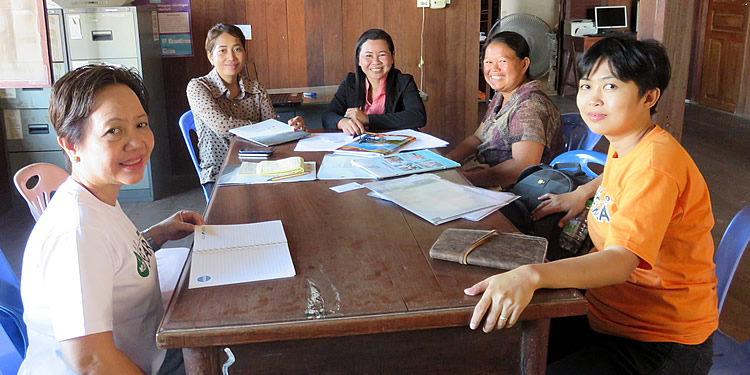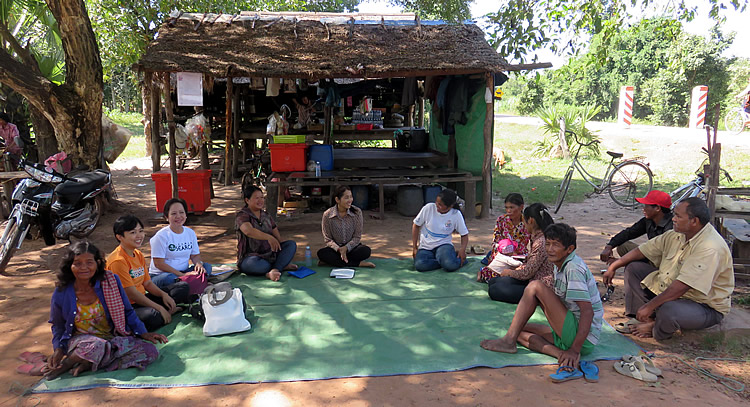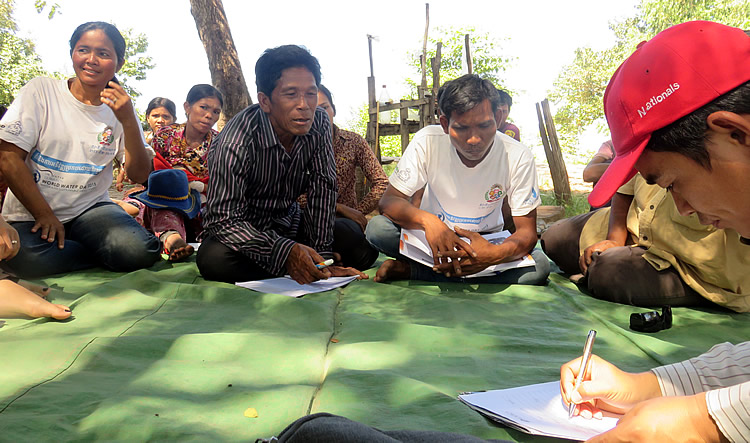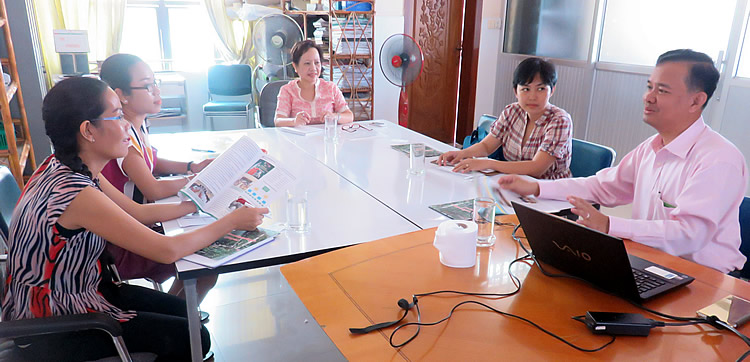M&E, one of the important components of the ASRF Pilot Phase, serves as an opportunity for the PMU to meet the implementer of the project, see the project sites, and interact with stakeholders. This is also a learning exchange experience for the ASRF team and grantees. The lessons and recommendations gained from this activity are relevant inputs for the assessment of the ASRF pilot phase.
The first project funded by ASRF in Cambodia was implemented by the Department of Forest and Community Forestry (DFCF) under the Forestry Administration of the Ministry of Agriculture, Forestry, and Fisheries (MAFF). It aims to strengthen the cooperation between the government and civil society organizations in Community Forestry Program implementation at the subnational level. The second project was implemented by Banteay Srei, a non-government organization working with Cambodian women and communities in rural areas. The research project aims to assess trends of non-timber forest products’ (NTFP) access and use by communities in Siem Reap in order to identify options to improve their livelihood.
The ASRF met with Mr. Long Ratanakoma, Deputy Director of DFCF and Ms. Chan Sophoan, Program Director of Banteay Srei in Phnom Penh. The PMO together with Banteay Srei community organizers interacted with members of the Sras village and visited the project site in Ruel commune, Puok District in Siem Reap. After the activity, the group discussed their observations, recommendations, and administrative steps in closing the project.
Similar to many forest communities, the major issues confronting the Sra village are the dwindling resource base due to the absence of sustainable harvesting practices of NTFPs, and confusion over forest land ownership. The result of the study as well as the recommendations were presented to stakeholders. Some of the major recommendations that they plan to pursue are education for communities on sustainable harvesting of NTFPs, forest rehabilitation, and mapping of the target community forest areas. The accomplishments of the first project complement well the study because the Provincial Community Forestry Program Coordinating Committee (PCFP-CC) and the Community Forestry Network (CFN) that the project aims to strengthen were already officially recognized and have conducted regular meetings. The officials at the subnational level also highly acknowledged the value of community forests in people’s lives and the environment.
The ASRF team recommended to strengthen the ties between the government and Banteay Srei so that they can be more guided in their efforts to rehabilitate the forest, address the issue on land ownership, and increase the income of village members. Another recommendation is to integrate the budget needed by the PCFP-CC and CFN in the Commune Investment Fund of the Forestry Administration in order to sustain the community forestry program at the subnational level. The accomplishments of the project would hopefully catalyze more actions towards achieving the government’s target of 2 million community forestry by 2029. (Mary Ann A. Batas)



